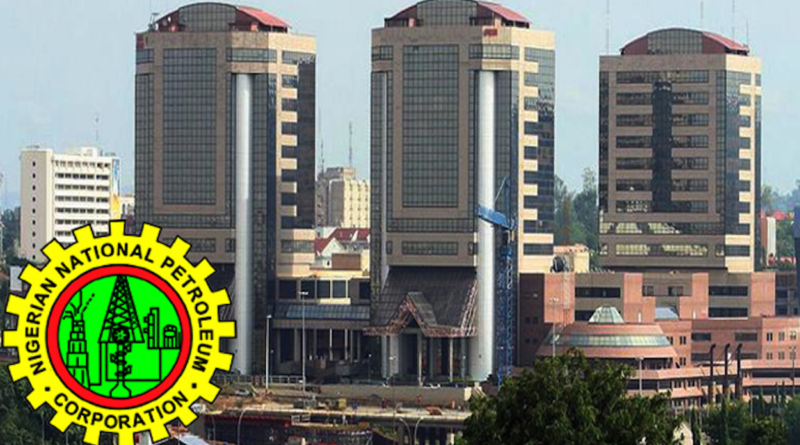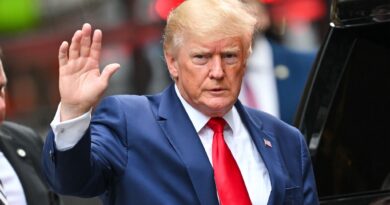“NNPC Ends Exclusive Deal with Dangote Refinery”
NNPC Quits As Middleman In Dangote Refinery Petrol Purchase
The Nigerian National Petroleum Company Limited (NNPC) is terminating its exclusive purchasing agreement with Dangote Refinery, allowing other marketers to buy petrol directly from the refinery. As a result, NNPC will no longer be the only off-taker, enabling marketers to negotiate prices directly with Dangote Refinery. This development aligns with the current practices for fully deregulated products, where refineries are allowed to sell directly to marketers on a willing buyer, willing seller basis.
The Vice President, Devkumar Edwin of Dangote Industries Limited, announced in September that the 650,000 barrels per day Dangote Refinery had started processing petrol. Mr Edwin stated that NNPC Limited would be the exclusive buyer of its products.
However, in response to claims that the NNPC was undermining Dangote Refinery Limited through its actions, the NNPC clarified that it was not the sole off-taker of all products from the refinery. The company affirmed that the Dangote Refinery, like any other domestic refinery, was free to sell its gasoline to any marketer.
The NNPC further explained that the Dangote Refinery and other domestic refineries could sell directly to marketers on a willing buyer, willing seller basis, which is the standard practice for fully deregulated products such as diesel, aviation fuel, and kerosene. Despite this, on 15 September, the NNPC began loading petrol from the Dangote Refinery.
Although some major petroleum marketers were later reportedly given approval to lift the product from the refinery under an agreement with NNPC Ltd., independent marketers remained excluded. On September 26, the House of Representatives urged the federal government to require NNPC Ltd. and Dangote Refinery to permit independent marketers to lift petrol directly from the refinery.
The House also called on Dangote Refinery’s management to build, acquire, or collaborate in setting up tank farms or depots across the country’s geopolitical zones to improve public access to petroleum products.
This appeal came after a motion of urgent public importance was raised on Thursday by Oboku Oforji (PDP, Bayelsa). Mr Oforji argued that excluding independent marketers undermines competition in the sector, which is vital for lowering costs. He warned that some marketers might resort to importing products to stay competitive.
He said, “NNPC and the major marketers being the exclusive off-takers spell monopoly, which is tantamount to greed. This is the same NNPC Ltd. that has failed to manage our crude and refineries for decades.”
Some sources also attested that the NNPC is preparing to step down as the sole off-taker, enabling other marketers to directly buy petrol from the Dangote Refinery at the current market price. This move is expected to foster competition and possibly stabilise supply chains. The NNPC spokesperson, Femi Soneye, was unavailable for comment, but a senior company official confirmed the development to a news outlet on Monday morning. He said, “Yes, it is true.” We can no longer continue to bear that burden.“
The NNPC had claimed in September that it was buying petrol from Dangote Refiner at N898.78 per litre and selling to marketers at N765.99 per litre, shouldering a subsidy of almost N133 per litre.
The NNPC lifted about 103 million litres of petrol from Dangote Refinery between September 15 and 30. The refinery was able to load 2,207 of 3,621 trucks sent to it within the period under review. The vehicles carried just 102,973,025 litres of the planned 400,000,000 litres of gasoline earmarked to be lifted from the refinery at 25 million litres per day. That translated to just 26 percent performance.
Implications of this development
The NNPC’s withdrawal as the sole off-taker of Dangote’s petrol signals a major move towards full market liberalisation, enabling marketers to source products directly from Dangote Refinery or other suppliers. With the NNPC no longer absorbing the difference between Dangote’s selling price and the marketers’ purchase price, subsidies will end. Marketers will now buy directly from Dangote at market rates, adding their own margin, which could result in higher product prices.
Additionally, marketers can now procure products from a variety of sources, not just Denmark, fostering competition and potentially stabilising supply chains.
READ: Can Private Initiatives Save Nigerian Education?
Content Credit| Igbakuma Rita Doom
Picture Credit | https://leadership.ng/nnpc-ltd-first-ep-begin-production-at-oml-85-target-20000bpd/




